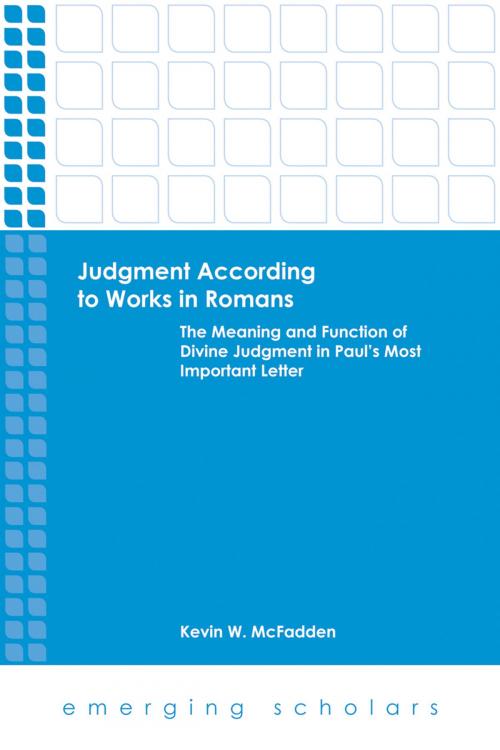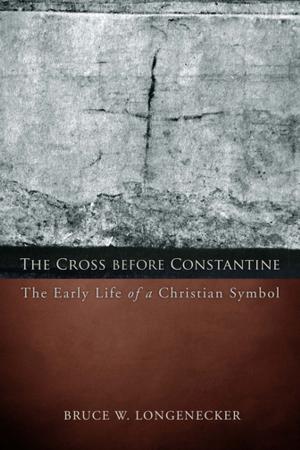Judgment According to Works in Romans
The Meaning and Function of Divine Judgment in Paul's Most Important Letter
Nonfiction, Religion & Spirituality, Bible & Bible Studies, New Testament, Criticism & Interpretation| Author: | Kevin W. McFadden | ISBN: | 9781451469776 |
| Publisher: | Fortress Press | Publication: | September 1, 2013 |
| Imprint: | Fortress Press | Language: | English |
| Author: | Kevin W. McFadden |
| ISBN: | 9781451469776 |
| Publisher: | Fortress Press |
| Publication: | September 1, 2013 |
| Imprint: | Fortress Press |
| Language: | English |
Giving careful exegetical attention to Paul’s letter to the Romans, Kevin W. McFadden shows that Paul wrote the letter to remind Roman Christians of his gospel because of his vocation as apostle to the Gentiles. The letter simultaneously demonstrates the guilt of the world and calls Paul’s audience to live out the implications of the gospel. The theme of judgment thus appears in two distinct ways. Paul opposes justification by works of law, but simultaneously affirms––as did most of the early Christian movement, McFadden argues––a final judgment according to works. These are not contradictory observations but belong together in a cohesive understanding of Paul’s theology and of his purpose in the letter. McFadden turns at last to the implications of his study for a reassessment of Protestant interpretation of Paul, and of the present impasse in interpretation caused by hasty or inexact generalizations made within the “New Perspective.”
Giving careful exegetical attention to Paul’s letter to the Romans, Kevin W. McFadden shows that Paul wrote the letter to remind Roman Christians of his gospel because of his vocation as apostle to the Gentiles. The letter simultaneously demonstrates the guilt of the world and calls Paul’s audience to live out the implications of the gospel. The theme of judgment thus appears in two distinct ways. Paul opposes justification by works of law, but simultaneously affirms––as did most of the early Christian movement, McFadden argues––a final judgment according to works. These are not contradictory observations but belong together in a cohesive understanding of Paul’s theology and of his purpose in the letter. McFadden turns at last to the implications of his study for a reassessment of Protestant interpretation of Paul, and of the present impasse in interpretation caused by hasty or inexact generalizations made within the “New Perspective.”















